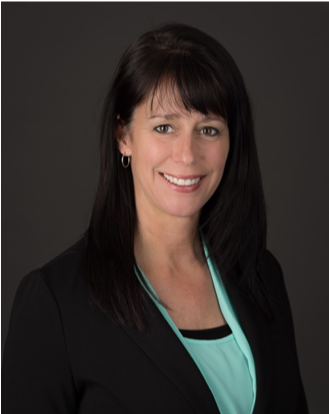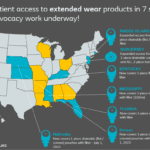Certified Wound and Ostomy Nurse, Mary Anne Obst, on the Importance of Recognition and Treatment of Patients Diagnosed with Short Bowel Syndrome in a Level I Trauma Center
 I started my career as a surgical ICU and flight nurse providing care to the critically ill both on the ground and in the air. Flash forward 34 years, I now am the complex abdomen specialist at Regions Hospital, which is a Level I Trauma Center in St. Paul, Minnesota. As a wound and ostomy certified nurse, I specialize in complex abdominal wall injuries and enteric fistulas. I often see patients with abdominal disasters that require many levels of support including diverting ostomies and total parenteral nutrition (TPN).
I started my career as a surgical ICU and flight nurse providing care to the critically ill both on the ground and in the air. Flash forward 34 years, I now am the complex abdomen specialist at Regions Hospital, which is a Level I Trauma Center in St. Paul, Minnesota. As a wound and ostomy certified nurse, I specialize in complex abdominal wall injuries and enteric fistulas. I often see patients with abdominal disasters that require many levels of support including diverting ostomies and total parenteral nutrition (TPN).
A rare and serious condition called Short Bowel Syndrome (SBS) occurs in patients when part of their intestines are surgically removed or injured, and the remaining intestine may not be able to absorb enough nutrients from food and drink.
In my experience, SBS doesn’t impact life early on in a trauma patient’s world while in the ICU. At that time, they often have little to no output of fecal matter because the body is working overtime to support the heart, lungs, brain, etc. Patients’ memories of the hospitalization usually begin once they reach our general care floor, which is when they start to mobilize, eat, and drink.
All this happening simultaneously with a patient awaking to learn that they now have an ostomy can often feel overwhelming to a patient and the family or friends who care for them. Patients and family caregivers may experience grief at the realization that they now have a temporary or irreversible ostomy. The emotional adjustment can take time. And since management of the ostomy and pouch is frequently paired with that of other injuries sustained by the patient, education is incredibly significant at this stage.
At our hospital, we have a stepwise program that involves the entire facility care team – dieticians, surgical staff, bedside nurses, patient care assistants, and other allied health professionals. We start by explaining what is happening with the patient’s body and why it requires management: SBS puts patients at risk for malnutrition, electrolyte disturbances, dehydration, and increased ostomy output. Additionally, patients and family caregivers often go through the stages of grief while mourning the loss of what they consider to be a normal lifestyle. Patient and caregiver education is incredibly significant at this stage.
When it comes to SBS, I often quote nutrition support specialist, Carol Parrish, MS, RDN, “It’s not the length of the bowel, it’s the functionality.” In my opinion, following Ms. Parrish’s handbook for SBS is beneficial to the patient. You can’t prepare a patient for what comes with an SBS diagnosis, and no two situations are the same. When possible, we try to eliminate the need for long-term TPN for our patients and move toward management of SBS through strict meal planning and medication.
Weaning off TPN is a process that takes time, patience and commitment from patients and caregivers. It is important to educate and re-educate the care teams on medication choices and food and drink choices. I’ve seen great success from patients and caregivers that are diligent in tracking how certain food and drink affect them beyond their stay in the hospital.
SBS is a rare condition that is still not widely recognized in the medical community. More education for providers and access to care for patients is essential. Teamwork is key in managing the changes and challenges that come with an SBS diagnosis. There are resources available to help patients and caregivers as they navigate the journey with SBS and seek support.
Mary Anne Obst RN, BSN, CCRN, CWON, CWS is a complex abdomen specialist at Regions Hospital in St. Paul, Minnesota.
This article was created by Takeda.
Editor’s Note: This educational article is from one of our digital sponsors, Takeda. Sponsor support along with donations from our readers like you help to maintain our website and the free trusted resources of UOAA, a 501(c)(3) nonprofit organization.



 Coloplast 2022
Coloplast 2022
I felt this article was literally about me as my colon ruptured in 2018. I woke up about 35 days later in the ICU & was hospitalized 4 mos. I did not know what an Ileostomy was. I had to learn quickly as my weight had dropped to 69 lbs and no bag would stick to me as I was skin & bones. I had to pretty much educate myself about everything. This is why I now advocate for Ostomy patients in the US & in the UK. Challenging to say the least. Overwhelming to handle is an understatement.
I had to learn about diet & hydration on my own. The General Surgeon knew nothing & was terrible. I had to find a new surgeon and WOCN. I will help anyone who needs me. @Carsueb on Twitter
I can sort of relate to your problem it sounds awful I have an ostomy and I’m told the surgeon left a curve in my intestinal tract leaving me either with a blocking problem or nothing coming thru and having to take something to get things moving again I have no support system
Had emergency surgery for blocked bowel 2years ago,now have sbs. I think because i almost died my family and i were sort of immune to the fact i ended up with an ileostomy and ostomy bag. I dont remember getting the bag, it was sort of always there causing issues for the nurses. In the world of the hospital it was just sort of there!
This is a great piece, so glad for your patients to have you and thank you for educating and raising awareness for us!
Even my last GI who SPECIALIZED in SBS didn’t understand this. Particularly that “It’s not the length of the bowel, it’s the functionality.” He didn’t believe I needed iron (even though I’ve required iron since 1995 when I was diagnosed with SBS). Ok sir, Bet! 🙄 I quickly proved him wrong.
I was injured on 8/3/2020 while riding my motorcycle. My injuries are too much to list. All I can say is I still refer to Maryanne as one of my “super nurses”. I owe my life to her and all of the people at Regions that saved me. The last time we spoke. It pertained to the journey from incident to aftercare. I couldn’t begin to express my gratitude. I look forward to seeing her again.